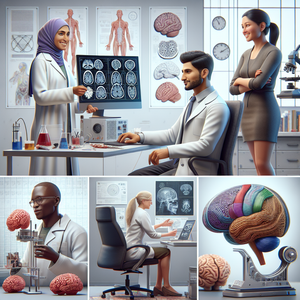
Exploring Career Opportunities in Self-Driving Car Technology
The field of self-driving cars is speeding up and opening a wide range of career possibilities. With major companies like Tesla, Google, and Uber investing heavily, autonomous vehicles have moved from being a futuristic dream to a present-day reality, creating a strong demand for talented professionals. This sector offers diverse roles, from software engineering to machine learning, providing various career paths for those eager to jump into this dynamic field.
Job Summaries:
Boosting Your Career Prospects:
- To enhance your chances in the self-driving car industry, consider these practical strategies:
- Networking and Mentorship: Connect with industry leaders through forums, conferences, and social media to build valuable relationships and gain knowledge.
- Specialized Education: Take courses or earn certifications focused on the latest technologies and trends in self-driving cars.
- Stay Informed: Keep up with industry trends, regulatory changes, and technological developments through journals, podcasts, and webinars.
Industry Overview and Statistics:
- The self-driving vehicle industry is growing steadily, with an increasing demand for skilled professionals.
- Average salaries for specialized roles range from $80,000 to $150,000, depending on experience and expertise.
- The sector is expected to create thousands of new job openings in the coming decade, emphasizing the need for a skilled and adaptable workforce.
Career Pathways:
- Machine Learning Engineer: Develops AI algorithms to enhance vehicle adaptability, requiring skills in computer science, Python, and TensorFlow.
- Systems Engineer: Integrates sensors and software for smooth vehicle operation, needing a degree in engineering and experience in systems design.
- Software Engineer: Creates reliable software for vehicle control, with proficiency in C++ and ROS.
- AI Engineer: Specializes in computer vision and path planning, often holding an MS or Ph.D. in robotics or AI.
- Control Systems Engineer: Designs control algorithms to maintain vehicle stability, requiring expertise in control theory.
- Embedded Systems Engineer: Develops firmware for vehicle hardware, needing knowledge of embedded programming.
- Perception Software Engineer: Works on interpreting sensor data, crucial for understanding the vehicle's environment.
- Project Specialist: Manages project implementation, essential for cross-functional collaboration.
- Field Service Engineer: Maintains vehicle operation, requiring practical engineering experience.
- Strategic Account Manager: Manages client relationships to drive business growth.
- Vehicle Software Engineer: Integrates software solutions for vehicle functionality.
- Operations Manager: Oversees fleet deployment and operation.
- Simulation Engineer: Develops simulation environments for testing systems.
- Safety Engineer: Ensures vehicles meet safety standards through thorough testing.
- HMI Designer: Creates user-friendly interfaces for vehicle interaction.
- Data Scientist: Analyzes data to improve vehicle performance.
- Technician: Performs maintenance and repairs on vehicle systems.
- Mapping Engineer: Develops systems for accurate vehicle navigation.
- Test Driver: Evaluates vehicle performance under everyday conditions.
- Robotics Engineer: Designs robotic systems to enhance vehicle capabilities.
The self-driving car industry is full of career opportunities for those ready to innovate and adapt. By focusing on technical education, networking, and staying informed about industry trends, aspiring professionals can carve out successful careers in this exciting field. With the right skills and a commitment to continuous learning, the possibilities are endless in shaping the future of transportation.
Explore More Jobs

